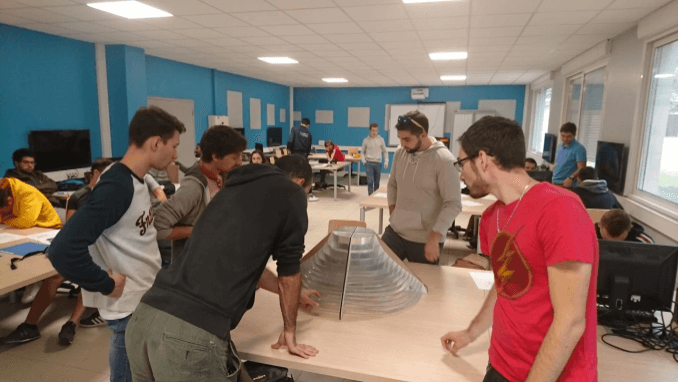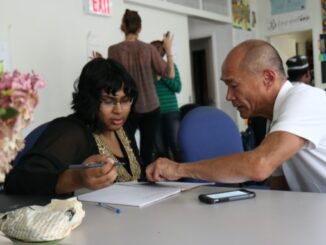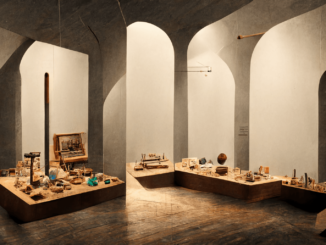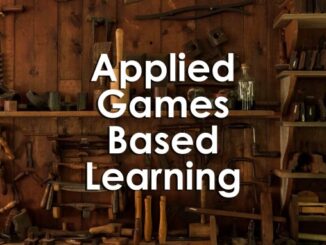
Technological change has had a deep impact on both education and training (sharing knowledge, skills development, learning assessment). Since 1997, I have gradually introduced games in the classroom. First inspired by commercial games, I designed specific games based on my teaching experience and my creativity. My favorite tool is “Prof’île”, a game using 30 questions cards. Based on the answers of each student, I have a behavioral map which provides information on the ability to work in autonomy or in a group. A second axis gives indications to the ability to think about concepts or to make things. Thus for the teacher it simplifies the constitution of working groups (team building) and it allows the design of tailor-made educational activities. And for learners, it is the opportunity to develop new skills by
going outside their comfort zones.
3D printing workshop
In 2014, I led 3D printer assembly workshops. Students had the opportunity to build their own machine. They not only improved their mechanical skills, but they discovered cooperation and the exchange of know-how in programming and project management. So I had the idea to hack the “Arduino” boards, the sensors and actuators to make my own materials characterization instruments. The concept of the role-playing game “Hack and jaM” was born.

Hacking 3D printer parts to build a new device
In materials science we need to know the mechanical and thermal properties to choose the material suitable for a specification. In a 3D printer, all the ingredients are there for the design of a new prototype. Teams of six players challenged each other to design a new measuring instrument. As a client, I announced my expectations to clarify my needs. The players then had to analyze the market and check the overall feasibility. As the game master, I announced unforeseen events that players had to adapt to. Due to the limited duration of the session, the players had to outsource some of the work. To avoid boredom during the session, I limited the number of players to three per team : a project manager, a business engineer and a designer. The agility of the role-playing game has allowed the emergence of new rules such as the use of a currency: experience points, XP. The first six students who enter the room earn 100XP for their team. If a player character does not have a skill that slows down the progress of the project, he or she has the option of going to training. Delay points and a loss of XP are counted but
the success of the project is guaranteed.
Soft Skills development in Project Management
Although the main theme is mechatronics, students are assessed on skill development. They will know how to choose a sensor (temperature, pressure, force) and how to physically connect them to an “Arduino” board. But they will also know how to organize themselves, how to distribute tasks, how to manage time under stress. And they will also have to adopt collective intelligence strategies to solve complex problems. Sometimes I ask for the design of an instrument with a lot of features. The teams work on part of the problem first. Then they come together to share their progress and join together to complete the challenge.
Patent filing and book writing valuation
I first used Post-it notes for the first play tests. I then quickly designed square cards in 3.5 inch format using LATEX. A pattern-matching and color coded key on the cards allows the technical feasibility to be checked. The cards also serve as a “supplier” catalog. The card game has been patented (e-Soleau). University of Montpellier has supported a patent filing of “Hack and jaM” Role Playing Game (INPI). The game play can be easily adapted for other situations in Project Management, e.g. how to organize a social event, or how to develop a new prototype and so on.
Laurent’s book – Innovation Pédagogique, Serious Gaming et Game Design (French Edition) is available from Amazon
- “Hack & jaM”: The birth of a Role Playing Game - 11th September 2021





Be the first to comment